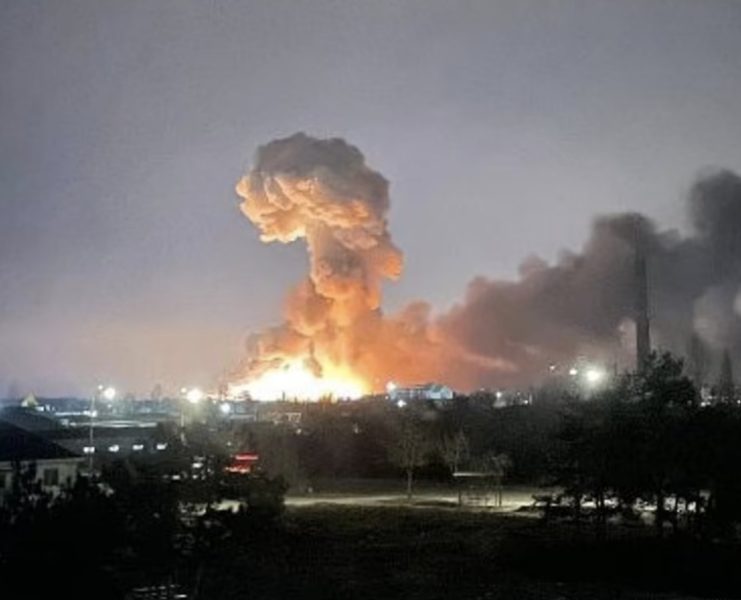
Westerners are trooping in to fight Russians. Is it a good move?
Zelenskiy’s move to free prisoners — including hardened criminals — to join the army also comes with a set of concerns

Anything is fair in love and war, and Ukrainian President Volodymyr Zelenskiy is testing the latter part of the adage. With the Russian attack intensifying, Zelenskiy has called for the formation of an international legion, under which young volunteers can enter his country without a visa and enlist.
“Every friend of Ukraine who wants to join Ukraine in defending the country please come over, we will give you weapons,” he said. Zelensky also said Ukrainian prisoners with military experience will be released if they are willing to fight the Russians, and subsequently pardoned.
Inspiration gained from Zelenskiy’s speeches, visuals of the horrors of the war, some guilt over Ukraine being left to its own devices, and the fear that the Russian invasion may spread like a contagion and hit their own soil, appear to be the driving forces behind young men from the West joining the International Legion of Territorial Defence of Ukraine.
Also read: Is NEET driving students abroad to study medicine?
Western governments have largely been supportive of their citizens joining the war in Ukraine’s support, though they do have a general advisory asking their citizens not to visit Ukraine. The US, UK and Danish governments have said it is entirely up to the individual, though British Defence Secretary Ben Wallace did add that Britons with no military training ought not to enlist. The Latvian parliament voted unanimously to allow its citizens to fight the Russians.
While bolstering the armed forces with any hand that offers help is indeed a good war strategy, the move does raise certain concerns. What happens to the ‘helpers’ once the war is done remains the biggest question.
Who’s headed to Ukraine now?
A motley mix of westerners is willing to fight on Ukraine’s side, according to media reports. What appears to be feeding this zest is the fact that neither NATO nor any of the Western countries has directly stepped into the war. The fear that joining forces against Russia may trigger a world war — which the world can ill afford — appears to be inspiring the citizens to do their bit.
Also read: How Indian med students’ dreams came crashing
A Reuters report said a software developer from Texas, USA, and a cook from British Columbia, Canada, are among those eagerly responding to Ukraine’s invite. What inspired them was Ukrainians’ fierce resistance, they reportedly said. There’s an ideological aspect too — many North Americans fear their democratic rights back home will face a threat if Europe is left unsupported.
The Independent said those who have enlisted include former soldiers, ordinary civilians and emergency responders. Apart from the US and Canada, people from the UK, Norway and the Netherlands are also known to have joined, as also some Ukrainian nationals living abroad. Those seeking to enlist mostly crowdsource funds to reach Poland, from where they cross the border into Ukraine.
Means and methods
Media reports said some young volunteers are going straight to Ukraine to enlist, while others are applying at Ukrainian embassies and consulates in their respective cities. For many, this means quitting their jobs or giving up on their education or leaving their young families behind.
Also watch: Together in tough times: Ukrainians and their pets
People are landing in Ukraine not just to fight, but also to offer humanitarian services. The Reuters report spoke of a young physician registering himself as a volunteer with Ukraine’s health ministry.
There’s plenty of help and advice available on social media. Forums have mushroomed on Twitter Spaces, WhatsApp groups and other platforms, where war veterans, the general public and those eager to enlist swap ideas and tips.
On freeing prisoners
Desperate to keep the Russian troops in check, the Ukrainian government has said prisoners with previous combat experience will be released to help with the “struggle for our state”. “Ukrainians with real combat experience will be released from custody and will be able to compensate for their guilt in the hottest spots,” Zelensky said.
Some of those in prison have been convicted for participating in terrorist activities, but the President said sanctions against them will be lifted. Defending the nation is all that matters now, he said, admitting that it is a tough call from a moral viewpoint.
Government officials observed that it is a rather complicated process, as the service record, severity of crime and combat experience of each prisoner would have to be judged.
Primary concerns
Ukraine’s strategy of roping in any help from any source comes with a bunch of concerns, said war experts. Inviting foreigners with good intent but nil military experience can have drawbacks, as they could impede operations, although unwittingly, they observed.
Some of the convicts with military experience are hardened criminals, and post war they could pose a real threat to civilian society.
Among the prisoners released are those who fought the violent separatist war in the east Ukrainian regions of Donetsk and Luhansk, such as combat veteran Sergey Torbin, said news platform Mothership. Dmitry Balabukha, also an ex-serviceman, got a nine-year jail term for stabbing a man, and he has been released, too, it added.
Roping in such men could dampen sentiment in the armed forces, as it could reflect the gaps in the existing system. Men like Torbin, who rebelled against the Ukrainian government earlier with Moscow’s tacit support, could still harbour loyalty for Russia. This could seriously jeopardise Ukraine’s security.

